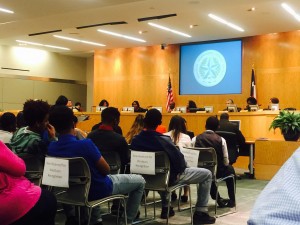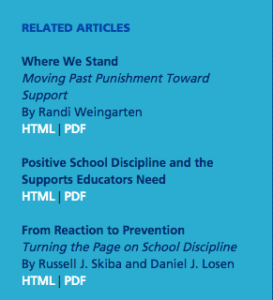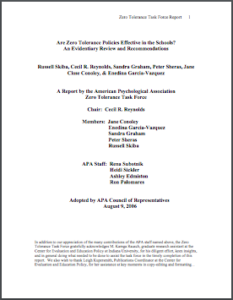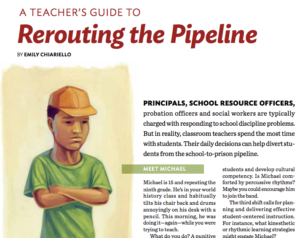Educators and school administrators have a critical role to play in dismantling the school-to-prison pipeline. In some cases, educators are the most reliable and supportive adults in a student’s life. Classrooms should be a safe space where students can focus on learning and developing socially, without fear of being pushed out or criminalized. It is so important for edu cators to do what they can to keep students in their regular classrooms, learning with their peers, and to model appropriate behaviors and relationships.
cators to do what they can to keep students in their regular classrooms, learning with their peers, and to model appropriate behaviors and relationships.
There are many demands on educators, which can make it easy to rely on “quick fixes,” like suspensions or referrals to school police. But, it is important for educators to use other methods to help students improve their behavior.
Some concrete steps that educators can take to create safe and supportive learning environments are:
- Do not suspend students or send them to alternative schools for behavior that is not a threat to classroom safety.
- Do not call police officers to handle student behavior that is not a threat to classroom safety.
- Push your fellow educators and administrators to adopt and practice research-based positive behavior models that do not rely on classroom removals, police, and courts.
- Acknowledge your biases and how they may influence your interactions with students and their families.




